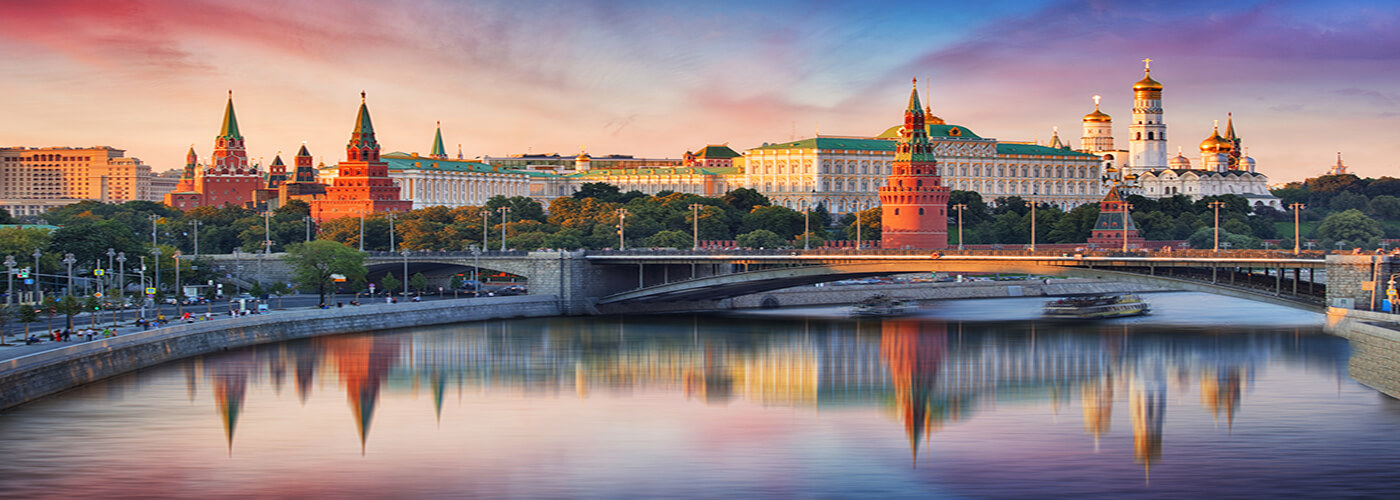Everything You Take for Granted Could Be at Risk
My wife, Yulia, was walking her eight-year-old son to school recently. She looked at him and said, “Don’t speak Russian on the street.” He didn’t understand why, but nodded.
That’s the end of the story.
The beginning of the story is Russia’s unprovoked war on its neighbor and onetime country-mate, Ukraine. Because of the vast animosity toward Russia here in Prague due to the invasion—and because of the Czech Republic’s deep distaste for its imprisonment inside the Soviet Union for half a century—my wife has heard a lot of negative words about Russia and Russians in her daily walks through the city.
She is Russian, by way of Ukrainian, by way of Soviet. She was born in the USSR and grew up in Crimea when it was part of Ukraine after the breakup of the Soviet Union. But then she became Russian when Putin annexed the Crimean Peninsula several years ago. Her Ukrainian passport was effectively useless and she was given a Russian passport instead.
All of which plays into her worries at the moment, as well as her opportunity…which I will come back to.
Right now, Russia is country-non-grata just about everywhere in the world. Sanctions have hit the Russian economy hard. Russian airlines are welcome pretty much nowhere. Russian citizens, however, are still allowed entry into countries, and are granted necessary visas. Indeed, just this week Yulia and I went for our appointment for her biometric, long-term residency visa and she had zero problems with her Russian passport.
But it’s quite easy to imagine a moment when the Russian government does something extremely idiotic that angers the world to a level we’ve not seen in generations. Likewise, it’s not hard to imagine a response that sees the world shun average, everyday Russians. Meaning Russian passports become about as useful as a crepe-paper umbrella in a thunderstorm.
Yulia realizes this is a very real risk.
Already, she has been cut off from her banks. First, she can’t access her Crimean banks because of previous sanctions tied to the 2014 takeover. With the ruble crumbling today, she has no way to move money from those banks. So, she recently had to get her mom to take out all the money from her bank and stash it in gold.
Second, her bank in Moscow, where she once lived, is one of the leading Russian banks that was hit with the new set of sanctions because of the Ukraine invasion, so she can’t access that money to move it anywhere either.
Now, imagine yourself in a similar situation.
Imagine America does something so egregious that the world cuts off American citizens. Or, imagine something entirely different: A crisis slams America—political, social, economic, financial, monetary. And in response, America shuts its borders.
That’s not fantastical. America shut its borders during the pandemic to keep people out. In the right set of circumstances, why would it not shut its borders to keep money and people in?
In that moment, what is the one thing you most want?
The ability to get out.
And for that, you need a non-U.S. passport—a document you wave in front of border agents as you head to a safer destination.
Look, I know all of that sounds far-fetched. But history shows that nothing is far-fetched. Space travel, atomic destruction of cities, confiscation of gold. I mean, a decade ago I was writing about a red-blue divide that would see talk of secession erupt in America. People laughed—ludicrous!
These days, those stories show up in the mainstream media regularly.
Nothing is far-fetched. It might have long odds, but the longest of shots regularly pay off at the horse track.
Which brings me back to Yulia and her realization/worry that just maybe Russians lose access to the world.
She knows the answer is a second passport, so she’s starting the process of trying to reclaim her Ukrainian passport based on her Ukrainian heritage. She’s even looking at possibly claiming Austrian or Hungarian citizenship based on one of the most unique citizen-by-ancestry programs in the world. Both Austria and Hungary recognize ancestry based on their ancient empire’s borders before the treaties of World War I dismantled that empire. Western Ukraine, where her father’s roots lie, was once part of Austro-Hungary.
So, Yulia has a message for those who will listen.
What you take for granted is at risk every day. Nothing is certain. Nothing is far-fetched. Everything can change in a blink.
Yulia was lucky. She was already living with me in Prague when the war erupted. If she hadn’t been, there’s no way she’d be able to leave Russia, and likely no way she’d be able to apply for Czech residency any time soon.
All I’m saying is, just think about it. Explore the idea of obtaining a second passport somewhere. Like Yulia, you could well discover that you have second passport options you never knew about.
Sometimes what’s far-fetched today is tomorrow’s unbelievable reality.

